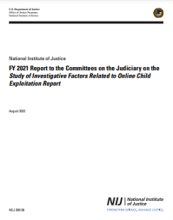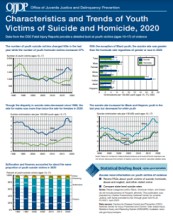FY 2021 Report to the Committees on the Judiciary on the Study of Investigative Factors Related to Online Child Exploitation Report
Date Published
August 2022
Agencies
NIJ
Publication Type
Report (Annual/Periodic)






